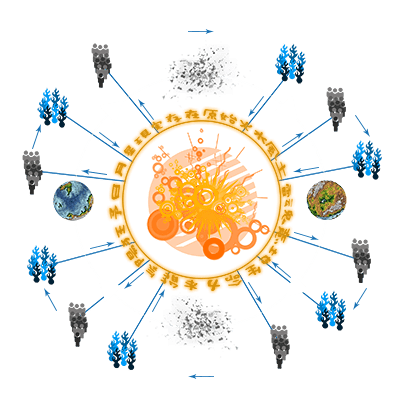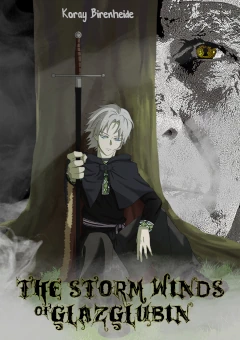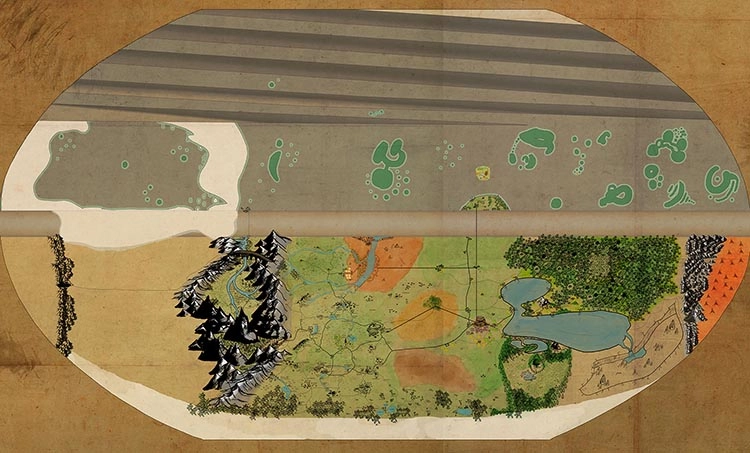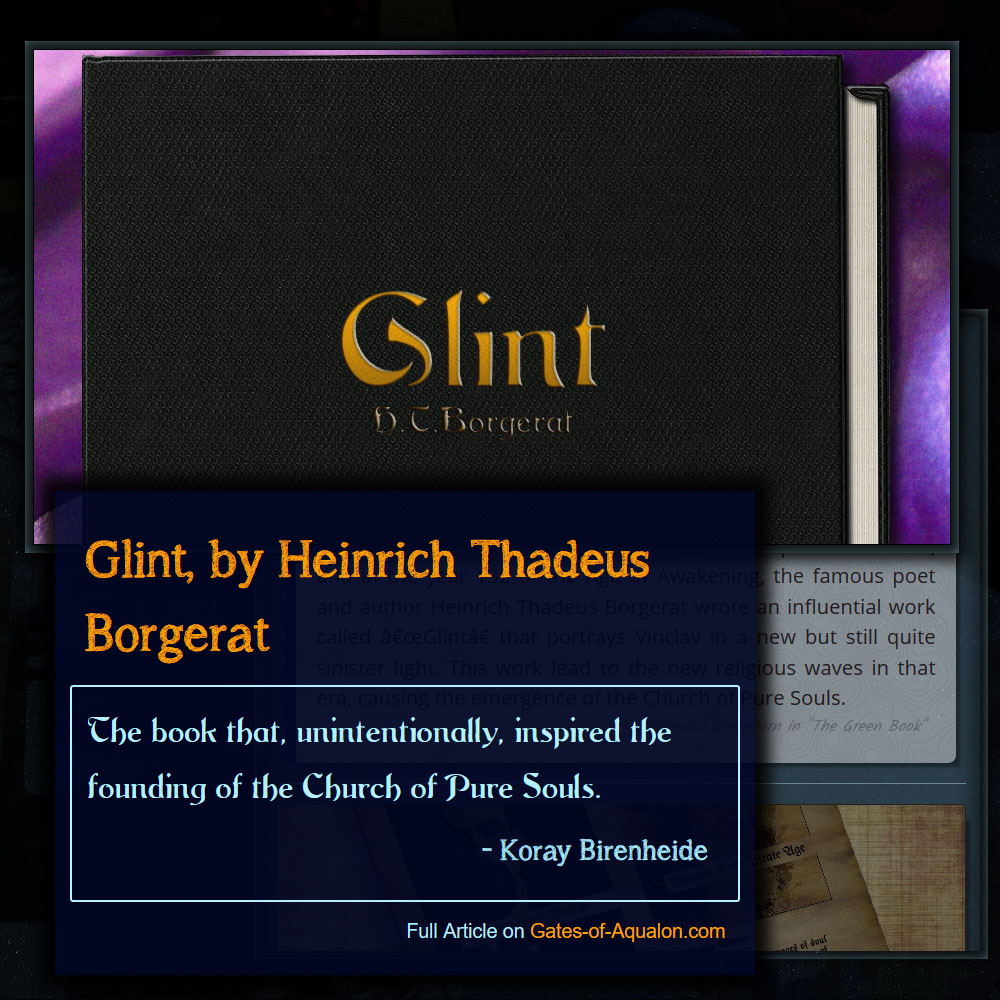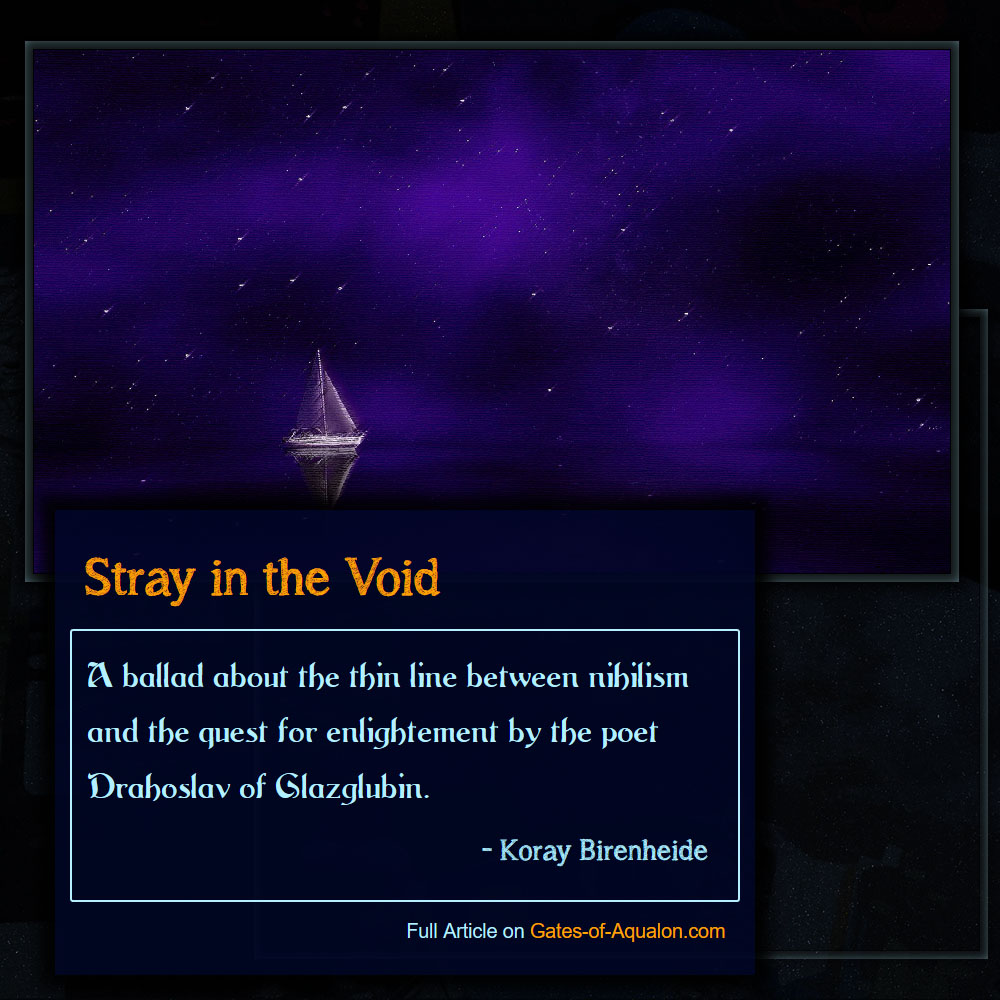The Buyôrin Philosopher's Circle
During the
Age of the Iron Divide, a circle of
Yamato philosophers from well-off houses with traditions of
magic met regularly between 49 and 82 AID to discuss the scriptures of
Yilik and make their own observations about the nature of the universe and the
Great Clockwork, which was called the Daihô in the Yamato tongue. They called themselves the Buyôrin 舞葉輪 ("Ring of Dancing Leaves").
Ri, Qi, Gen
"Rikkigen" is a more modern pronunciation of Yilik's "Ri, Qi, Gen", the three principles that make up the universe. In their studies and discussions, they often talked and theorized about the importance of the five elements in forming a comprehensive model of the universe.
Ri
Ri means something like "reason" or "principle". It is explained by Yilik as a primal energy or truth, which imbues all things with the rules that define what they are. The principle which imbues a rock with the concept of being a rock and not something else is Ri. Ri brings order into the universe.
Qi
Qi means something like "spirit" or "energy". It is explained by Yilik as the primal energy or truth that imbues living beings with the power to move and act of their own accord. It is opposed to Ri and brings chaos into the universe. People, too, according to Yilik, could choose to act on their Qi or on their Ri. The former meaning acting against and the latter towards their archetypes. As such there is a Ri of being a son, a Ri of being a father, a Ri of being daughter, a Ri of being a mother, a Ri of being a farmer, a Ri of being a king, and so many more.
Gen
Gen means something like "origin" and refers to the primal energy or truth that enables things which have Ri to develop Qi, surpassing their own concepts. This aspect is the least understood of the three basic truths, and even the later form of the Core Trinity does not really change this truth in any meaningful way. Modern philosophers and technocrats in particular ascribe the concept of "emergence" to what was understood as "Gen" in the olden days.— From "A Study of Yilik" by Rickard Leeuw
Digging Deep
In their research, they read not only the scripts of Yilik but also sought out old scripts of the
Angel Saxons and oral traditions of the Kaltani, which told of the
Elemental Titans of the early Old World. They realized that the Keeper Weapons, the indestructible, eternal artifacts that enable the Five Keepers to control the elements freely, were the fabled items that gave life to the titans and used this discovery to further cement the elements in their world view.
Three Truths Within, Five Paths Without
They concluded that beyond the three central principles or "truths" of the universe, the Rikkigen, five paths extend endlessly, making up everything within the universe.
On the inside, they defined the five facets of human existence: Tamashi 魂 ("soul"), Iryoku 意力 ("willpower"), Seimeiryoku 生命力 ("life force"), Honnô 本能 ("instinct"), Ki 気 ("spirit"). Whereas the original form of Rikkigen used the "ki" character to describe what Yilik had called Qi, the philosophers of the Buyôrin supplanted that principle with "son" 存 ("existing").
On the outside, they had the five elements: water, fire, lightning, earth, and air.
The Great Philosophers of Yamato
Because
magic was so strongly tied to the elements, they began theorizing that these elements were powerful souls in their own rights, just as the Keeper Weapons. In their many years of study and contemplation, they conversed with the Great Clockwork and sought out some of the Keepers to gain their perspective. They cemented the status of the Keeper Trinity, the three-soul-connection between Keeper, Keeper Weapon, and elemental Ur-soul in a number of scrolls that would garner much fame around the world.

